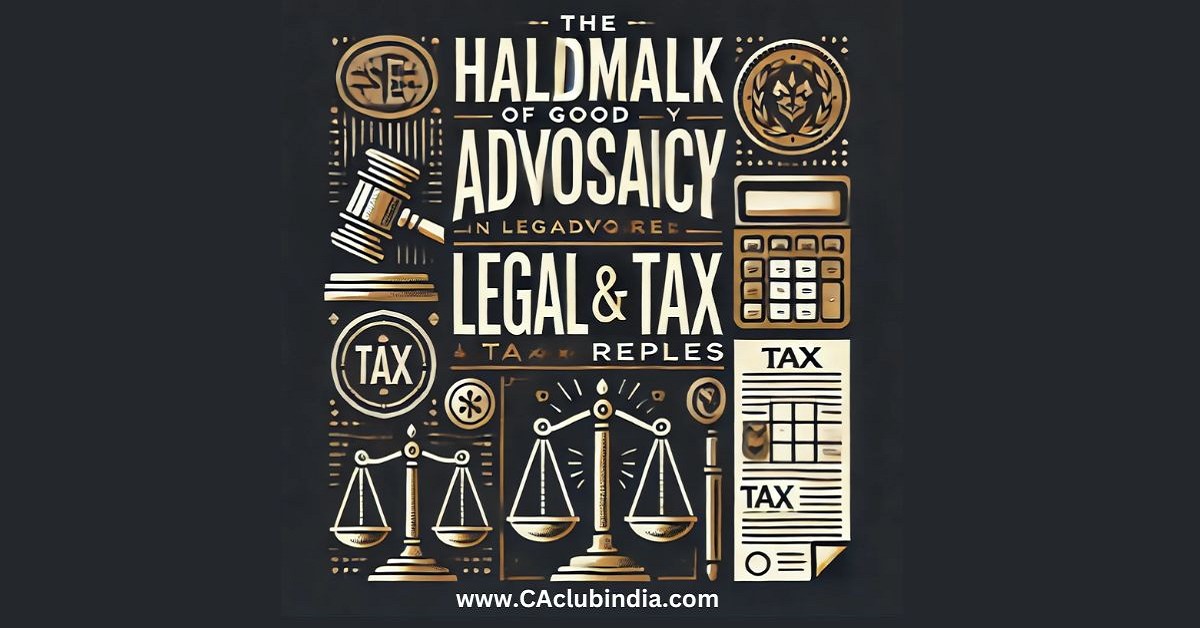In the complex world of legal and tax proceedings, the ability to communicate effectively is paramount. The adage "brevity is the hallmark of good advocacy" underscores the importance of conciseness in crafting replies to notices and appeals. A well-articulated, succinct response not only conveys your arguments more powerfully but also demonstrates professionalism and respect for the reader's time.

The Importance of Brevity
1. Clarity and Precision: Concise writing forces you to distill your arguments to their essence, eliminating unnecessary jargon and focusing on key issues. This clarity helps prevent misunderstandings and ensures your main points stand out.
2. Persuasiveness: A succinct argument is often more compelling. By highlighting the most relevant facts and legal precedents without extraneous details, you strengthen the impact of your position.
3. Respect for the Reader's Time: Legal professionals and tax officials are inundated with documents daily. A brief and well-structured reply is more likely to be read thoroughly and considered thoughtfully.
Strategies for Crafting Concise Replies
1. Understand the Core Issues: Before drafting, thoroughly analyze the notice or appeal to identify the primary concerns. Focus your response on addressing these points directly.
2. Organize Your Thoughts: Create an outline that logically sequences your arguments. A clear structure enhances readability and ensures a logical flow of ideas.
3. Use Plain Language: Avoid legalese and complex sentences. Clear and direct language makes your arguments accessible and reduces the risk of misinterpretation.
4. Support with Relevant Evidence: Include only the most pertinent facts, legal statutes, or precedents that directly support your argument. Extraneous information can dilute your message.
5. Edit Ruthlessly: Review your draft critically. Eliminate redundant words, phrases, and any content that doesn't advance your main arguments.
Tips for Effective Legal Writing
- Start with a Strong Opening: Clearly state the purpose of your reply and your main position at the outset.
- Use Headings and Bullet Points: These tools help break up text and highlight key points, making your document easier to navigate.
- Maintain Professionalism: Keep the tone respectful and objective, regardless of the nature of the notice or appeal.
- Conclude Summarily: End with a brief summary of your main points and, if appropriate, a call to action or a proposed resolution.
Benefits of Embracing Brevity
- Enhanced Comprehension: A concise reply is easier to understand, increasing the likelihood that your arguments will be accepted.
- Greater Impact: Brevity amplifies the strength of your arguments, making them more memorable and harder to refute.
- Positive Impression: Demonstrating the ability to communicate complex ideas succinctly reflects well on your professionalism and expertise.
Conclusion
In legal and tax advocacy, less is often more. By embracing brevity, you not only sharpen the effectiveness of your communication but also show respect for the time and attention of those who read your replies. Focus on what truly matters, express it clearly and concisely and your advocacy will be all the more compelling for it.








 CAclubindia
CAclubindia
